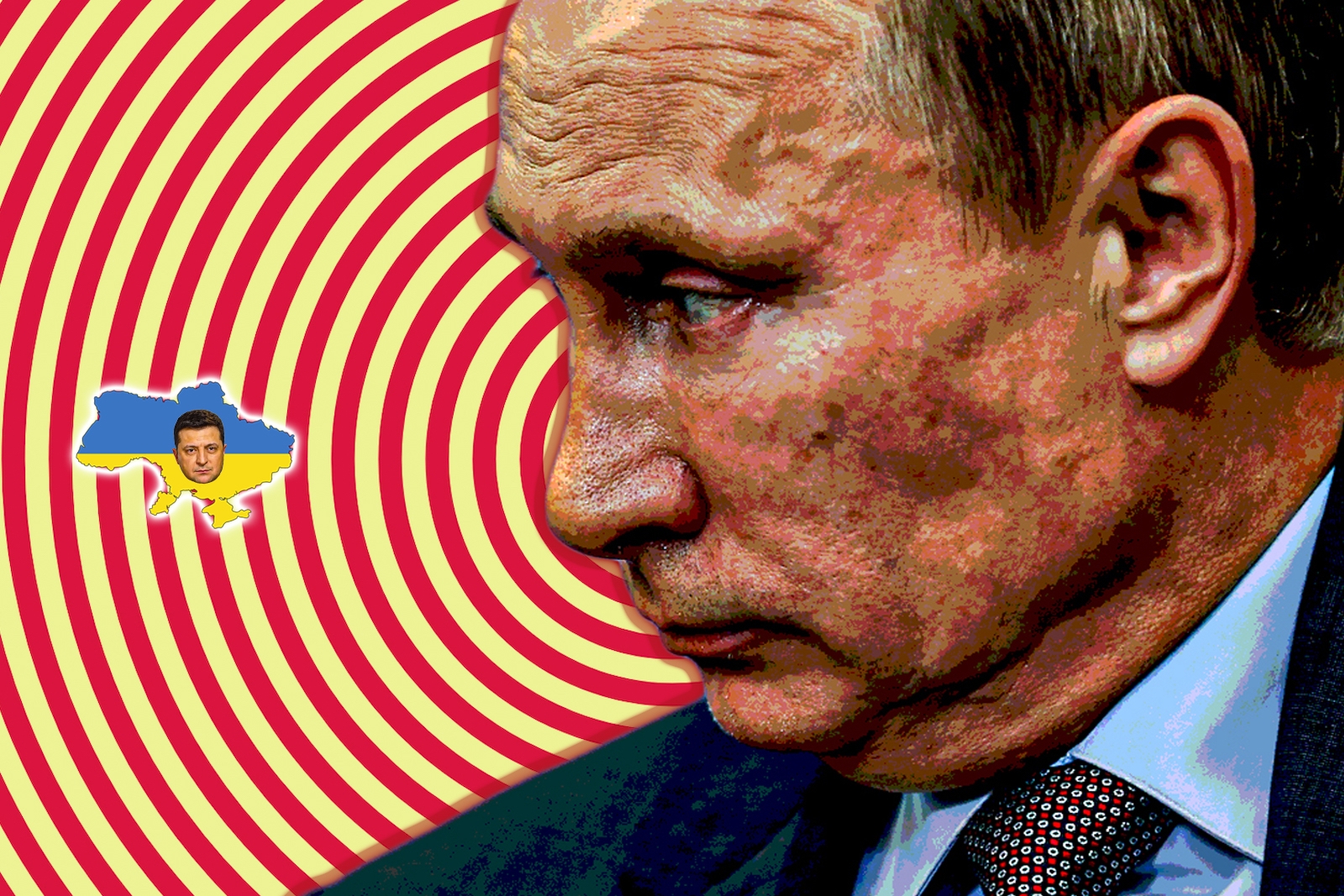
The Danger of Demagogues
A cautionary tale
Stop me if you’ve heard this story before: a veteran of a long, protracted, and deadly war sits embittered after his side has admitted defeat and capitulated. He blames his own side for stabbing his countrymen in the back. He blames his enemies, in the aftermath of the conflict, for taking advantage of his side’s weakness to impose an unjust peace. He blames the other: democrats, gays, subversives—effectively anyone who dares to disagree with him. And he vows to re-establish the once-and-future greatness of its empire.
After a brief interlude of peace and relative prosperity, this former soldier rises to power vowing to restore the nation’s greatness. In righting these historical wrongs, he falsely claims that his country’s citizens abroad are suffering undue persecution. So, he invades parts of these countries and claims them as his own. No one stops him.
Undeterred and emboldened by these successes, he increases his ambitions. He mobilizes his troops for war and waxes loudly and a bit madly about perceived historical transgressions. He claims dominion over neighboring populations—that they rightfully belong to him and his empire, self-determination be damned. Might will make right, he promises. He then launches a preemptive attack against a neighbor he views as a lost appendage and dares the forces of democracy to stop him, assuming (rightly or wrongly) that they lack the stomach for conflict.
As a student of history, I realize full well that Vladimir Putin is not Adolph Hitler nor Joe Biden necessarily Neville Chamberlain; the analogy offers an illustrative but imperfect comparison. But it need not be perfect to serve its purpose. The world has come a long way and learned a great deal about collective security, the importance of consensus, and the necessity to protect human rights and dignity since 1939. The economic sanctions that have already been imposed represent a solid start, but are far from a sufficient deterrent. The further lesson that should be learned is that that timid action (or perhaps rather the path of least resistance with a tepid slapping of the wrist) in the face of naked aggression, brutality, and attempted domination is tantamount to surrender and will only ensure future conflict.
What of Ukraine?
To be sure, the U.S. and NATO have been clearer about the threat posed by Putin and the consequences that invasion would engender than their historical counterparts. They laid out and subsequently imposed the vast majority of the promised economic sanctions. They have reinforced their NATO allies with troops and equipment. At first glance, at the very least, they appear prepared for further attempted aggression and expansion by Putin’s forces. But what of Ukraine?
Do we simply abandon our Ukrainian allies and chalk the country up as a lost cause? Cannon fodder to protect NATO from the advancing threat of Russian tanks and infantry? A reverse buffer zone of the traditional Soviet mentality? A sad, but necessary sacrifice to ensure that the West stays safe and whole? Do we allow Putin his prize, content that our alliance held firm? What will we have gained ourselves and what—and whom—will we have sacrificed?
After the end of the Cold War, the United States and the West sold countries a dream of shared prosperity and peace. Democratize, we told them. Reform your bureaucracies and clean up your courts. Shared prosperity will follow. And in almost every part of Europe, it did. All of the countries that managed to join the EU are today more prosperous; Ukraine, without such benefits, progressed as well, if not as quickly and linearly. And the countries that hurried under the protective umbrella of NATO while it was still open (here’s looking at you, Baltic) remain uninvaded, if perpetually menaced by an ever-present threat.
But for those unlucky few left out in the cold of economic or political union (Turkey, some Baltic states, or, in the case of Ukraine, both), they were made promises while being afforded no real protections. Ukraine willingly gave up its massive nuclear arsenal, assured of various protections, that amounted in the end to very little. And so here we are today. A country with all of the resources, human capital, potential, and promise to succeed but stuck in a bad neighborhood, at the mercy of its meanest and biggest bully.
The inherent weakness of totalitarianism
More than anything else, what has struck me about Putin in the last week is the extent to which this is all very personal for him. Putin showed his true colors in Tuesday’s Potemkin Village of a Russian Security Council meeting: emotional to the point of incoherence; irrational to the point of blaming both previous Soviet leaders and the West; and out-of-touch with reality as he sits secluded in his czarist palace with no one left to tell him hard truths or present perspectives that don’t validate his pre-existing opinions. The emperor has no clothes, no clue, and no tether to reality.
Again, Tuesday’s press conference showed how deeply invested Putin’s own identity and ego are in this conflict. He effectively said that Ukraine has no right to exist as an independent country. Putin’s sense of Russia’s greatness cannot tolerate an independent, much less democratic, Ukraine. Its historical and cultural ties to Russia cannot, in his increasingly deranged mind, be severed. Ukraine is the ghost limb of Russia, and Putin can still feel it moving thirty years after its successful amputation and emancipation.
So, what happens when you have a leader with growing and unchecked power, making decisions on an increasingly isolated and individual basis by all accounts? You make dangerous, ill-fated decisions. And this is precisely the danger of demagogues. No one will tell you that you are making disastrous choices that will doom your country to the economic doldrums and will make you personally an international pariah.
It should not be lost upon us that Putin is one man, acting largely alone, against the will of his people, to instigate this invasion. Just today, thousands of Russians defied Putin’s dictates to protest the unlawful invasion of Ukraine in the streets of Moscow and St. Petersburg; they should be lauded for their bravery. In a recent poll, only 8% of Russians supported an invasion of Ukraine. It is important to remember that Putin, not the Russian people, is our enemy. And when we defeat Putin or he hopefully is overthrown during a bloodless coup, they should be supported and aided economically and politically, like Ukraine, should they choose to democratize.
What is to be done?
If Putin can reference Lenin, then so can I. George Kennan said long ago that the only language that the Soviets understood, or perhaps respected, was force. I by no means want to push us into a corner that would necessitate military conflict. All reasonable diplomatic options for conflict resolution should remain on the table. We should seek de-escalation and rapid resolution of the conflict. But at what cost?
Given Putin’s aims of restoring the Soviet Empire, mere palliatives seem unlikely to placate him. So how do we protect the West and avoid a broader war while not sacrificing Ukraine? First, we should not simply abandon Ukraine by saying “well, we sent some arms and tried out best.” Ukrainians are prepared to fight, are already fighting and dying, and will continue to do so.
But they need a fighting chance. And that means carving out an airspace over parts of their country that remain independent where the Russians cannot fly. It means declaring a line of longitude beyond which NATO planes will patrol and ensure that Ukrainians are not bombed or targeted. It means stepping up the sanctions to a truly maximalist level. Bring on the SWIFT guillotine and cut off Russian banks from international transactions. And reclaim all of those penthouses and thinly-veiled money-laundering operations to which London, New York, and numerous other foreign financial capitals have always turned a blind eye. And maybe take back Chelsea Football Club while we’re at it as a coup de grâce.
We do need to proceed clearly and deliberately, but that does not mean we cannot act in a bold, determined manner. Communicate our intentions not to abandon Ukraine. We will fund and arm the protection of the country and, if it comes to it, the resistance. We will impose maximum economic pain on the Kremlin leadership while doing our best to minimize the effect on its citizenry. This war need not have happened. Putin continues to claim that Ukraine is a legitimate part of Russia. This is a lie. This is a war of Putin’s choosing, and we should impose maximum pain upon him personally while supporting Russian civil society’s efforts to expel him and his own brand of illegitimate, totalitarian, demagogic rule.
